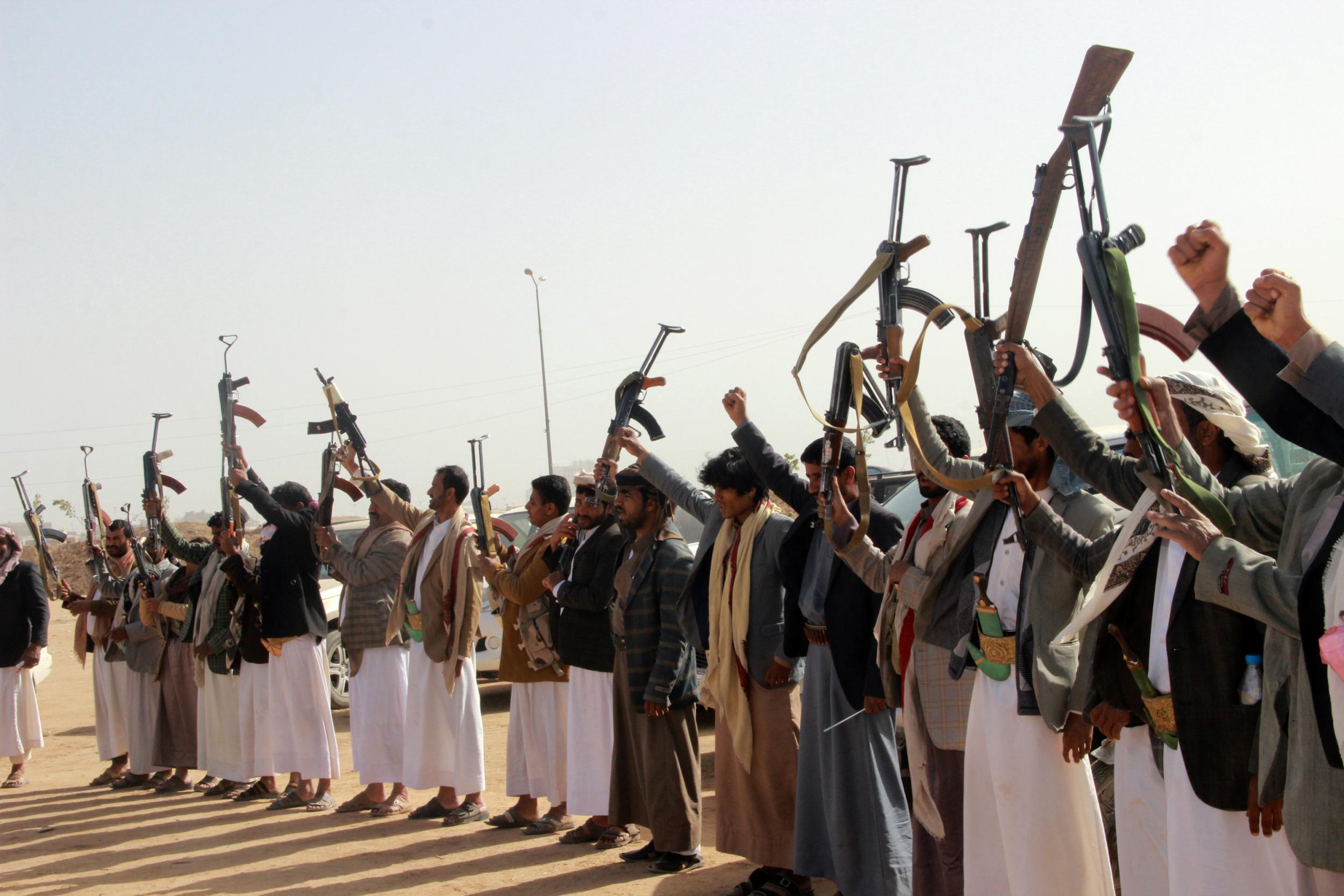Women 'snatched from cafes and tortured in secret prisons' by Houthi rebels fighting Yemen civil war
Shia fighters hold the women in secret detention centres based in villas on charges of prostitution or collaborating with Saudi-led coalition

Your support helps us to tell the story
From reproductive rights to climate change to Big Tech, The Independent is on the ground when the story is developing. Whether it's investigating the financials of Elon Musk's pro-Trump PAC or producing our latest documentary, 'The A Word', which shines a light on the American women fighting for reproductive rights, we know how important it is to parse out the facts from the messaging.
At such a critical moment in US history, we need reporters on the ground. Your donation allows us to keep sending journalists to speak to both sides of the story.
The Independent is trusted by Americans across the entire political spectrum. And unlike many other quality news outlets, we choose not to lock Americans out of our reporting and analysis with paywalls. We believe quality journalism should be available to everyone, paid for by those who can afford it.
Your support makes all the difference.Yemen’s Houthi rebel group has rounded up, forcibly disappeared and tortured dozens of women, while blackmailing their families, rights groups have revealed, as violence soars in the war-ravaged country despite peace talks under way in Jordan.
Over the past few months Houthis have begun to stage mass arrests of women, on charges of prostitution and collaboration with the Saudi-led coalition they are fighting, according to Nabil Fadel, the head of Sanaa-based Yemen Organisation for Combating Human Trafficking.
Mr Fadel told the Associated Press said that women were then sent to secret detentions in villas across the rebel-held capital.
The anti-trafficking group said it had obtained new information showing that the rebels were carrying out atrocities such as “abuse, torture, and forced disappearances of women and girls in secret and illegal prisons”.
A Yemeni human rights lawyer working on the issue said women were taken from cafes and parks over the past months, and their families had begun searching for their missing daughters.
An AP investigation revealed last month that thousands of Yemenis have been imprisoned by the Iran-backed Houthis during the four years of the war that has ripped the country apart and sparked the world’s biggest humanitarian crisis.
Within Houthi jails inmates were allegedly subject to extreme torture, including being strung by their wrists or genitals for weeks at a time, and doused in acid or melted plastic. One survivor, Monir al-Shariq was so horrifically tortured he was left unable to speak.
So far most of the detainees are believed to men. However, the anti-trafficking organisation said this week that mass arrests of women started after the Houthi appointment a year ago of Sultan Zabin as head of the Sanaa criminal investigation division.
The rebel-run Interior Ministry vehemently denied the allegations, calling them rumours from the “mouthpieces of the mercenaries” that are “tarnishing the image of security apparatus”.
It also denied the existence of secret prisons and illegal and arbitrary detentions and vowed to prosecute those behind the reports.
The news of the targeting of women comes as representatives of the warring factions in Yemen meet in Jordan to work on implementing a prisoner-swap agreed to during the last round of talks, in Sweden in December.
The talks are also focused around the strategic Red Sea port city of Hodeidah, the main gateway for over 80 percent of Yemen’s supplies of food and medicines.
Under a ceasefire deal, both sides agreed to withdraw from the city and hand it over to local government together with UN monitors.
On Thursday, unknown gunmen fired at the convoy of the head of a UN mission charged monitoring the truce as the officials left a key meeting.
Retired Dutch Major General Patrick Cammaert was not in the vehicle that was hit and he and his team returned to their base safely, according to Stephane Dujarric, the UN’s spokesman.
“I can assure you that General Cammaert and his team are supplied with the strongest possible security measures the UN can supply,” Mr Dujarric said on Thursday.
“But it is important to add that all the parties in Yemen are also responsible for the safety of all UN personnel in Yemen … We are dealing with a highly volatile environment in Hodeidah.”
Maj Gen Cammaert had been in the port city since late December trying to get the internationally recognised government and the Houthis to redeploy their forces as per the Swedish agreement.
Houthi television channel al-Masirah branded him “biased” in favour of the government, however, after Maj Gen Cammaert expressed disappointment at the rebels’ failure to open humanitarian corridors between Hodeidah and the capital.
Instead, the Houthis pretended to cede control of the port to naval forces by dressing their fighters in coastguard uniforms.
Both the rebels and officials from the government side blamed the other for the shooting.
Yemen plunged into civil war in late 2014, when the rebels captured the capital, Sanaa. A Saudi-led coalition intervened a year later, fighting alongside government troops.
Join our commenting forum
Join thought-provoking conversations, follow other Independent readers and see their replies
Comments